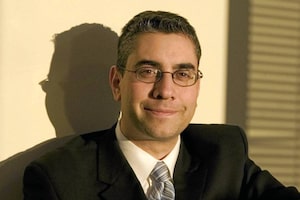We all know that the world is made up of savers and spenders. This is never more apparent than when you get on an airplane.
Most of us can relate to the feeling as you walk past the First Class passengers all curled up in their "beds." You then pass the Business Class that looks less fancy, but with extra room and warm cookies, and finally take your seat with the masses in Economy. I always wonder – who are these people in First Class, and did they really pay for their seats?
Just for fun, I took a look at a return flight from Toronto to Hong Kong. If I wanted to get there cheap, the lowest total fare I could find was roughly $1,200. There was a stopover, and definitely not much leg room. The total travel time is roughly 20 hours each way.
Then I did the opposite. Let's see what it takes to do it right. Cathay Pacific has First Class direct flights, with a total flight time of 15 hours, at a cost of $10,300.
Getting from point A to point B cost $9,100 more in First Class. That is just for one person. $18,200 more for a couple, and $36,400 more for a family of four!
Who does this? Why do they do it? Would I ever do it?
I guess the obvious driver of First Class travel is when someone else is paying for it. In many companies, there are policies, such as "if you travel on a domestic or European route, you travel economy. If you travel over eight hours, you can fly Business Class. For VPs and above, they travel Business Class up to 8 hours, and First Class if it is longer."
The more interesting question is who are the people who pay for the tickets themselves?
I know many wealthy people who wouldn't be caught dead paying $10,000 for a flight, whereas there are others who feel the same about flying Economy on long international flights.
Assuming you could afford it, would you ever fly First Class at those rates?
At my firm, we often tell clients to spend more on themselves. If they are in a very strong financial position, I point out that if they flew First Class instead of Economy a few times, they would leave an estate of $3.9-million instead of $4-million. Now is the time to live a little.
Interestingly enough – the argument usually falls on deaf ears. The reason is simple. They are savers. That is what got them here, and as much as you or others might try, they usually can't change.
The classic example is of the late Ken Thomson – for many years he was Canada's richest man and the owner of The Globe and Mail. When asked what his favourite restaurant was, he said something along the lines of "I like Golden Griddle. I get good value." Indeed, you could occasionally find Mr. Thomson seated at a central Toronto Golden Griddle restaurant on Sunday mornings.
On the other side is the person who happily spends big money to enjoy the good life. They stay at the Four Seasons and fly First Class. If they can afford it, I say "good for them." Why not enjoy life? What are they saving it for? In fact, at the moment, I believe that there is far too much praise of savers and general disdain for those who spend big money. If you are in the 1 per cent, why not enjoy it?
As a financial planner, I never advise spending what you don't have, or to spend today what you might need tomorrow. But within reason, if you have lots of money, there is no crime in enjoying it.
Of course, there is a problem if you live the good life, and can't afford it, or can only afford it for a short period of time. That is an entirely different conversation.
While it is nice to dream about "the good life," it is worth asking yourself whether you would ever actually live it even if you could?
Ted Rechtshaffen is president and CEO of TriDelta Financial Partners, a firm that provides independent financial planning advice. He has an MBA from the Schulich School of Business and is a certified financial planner. He was vice-president of business strategy at a major Canadian brokerage firm.
Follow Ted on his blog at The Canadian Financial Planner.
 Ted Rechtshaffen
Ted Rechtshaffen